Aaron Rothstein
Fellow
Aaron Rothstein, M.D., is an EPPC fellow in the Bioethics and American Democracy Program and an attending neurovascular physician and neuroepidemiologist. He completed his neurovascular fellowship at the University of Pennsylvania and his residency in neurology at the NYU School of Medicine. He received a B.A. in History from Yale University and his M.D. from the Wake Forest School of Medicine.
In addition to his duties, Aaron hosts the EPPC podcast Searching for Medicine’s Soul, which explores key themes in the relationship between human flourishing and the medical field.
Aaron Rothstein, M.D., is an EPPC fellow in the Bioethics and American Democracy Program and an attending neurovascular physician and neuroepidemiologist. He completed his neurovascular fellowship at the University of Pennsylvania and his residency in neurology at the NYU School of Medicine. He received a B.A. in History from Yale University and his M.D. from the Wake Forest School of Medicine.
In addition to his duties, Aaron hosts the EPPC podcast Searching for Medicine’s Soul, which explores key themes in the relationship between human flourishing and the medical field.
From 2014–2021 he was the author of the New Atlantis blog “Practicing Medicine,” which focused on the inner workings of the field of medicine and its theoretical, practical, and ethical complexities. He has also written essays and criticism for the New Atlantis, Public Discourse, the Wall Street Journal, the Weekly Standard, and Commentary.
You can follow him on Twitter @aaronrothstein.
Persecution and Israeli Academia
Aaron Rothstein
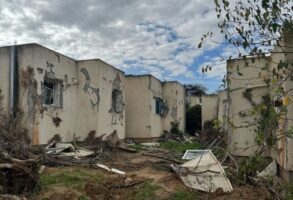
Many academics, perhaps recognizing the extreme nature of such boycotts, justify them by caricaturing Israeli policies as comparable to Nazism. It is only by such extreme assertions that boycotts can justify themselves.
Articles
The Public Discourse / February 14, 2024
Physician Burnout
Aaron Rothstein
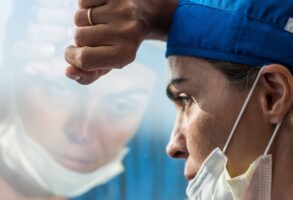
Doctors don’t necessarily need less work to assuage burnout; they need to do more of the vocational work that gives their profession meaning.
Articles
National Affairs / January 1, 2024
‘If I Betray These Words’ Review: First, Do No Harm
Aaron Rothstein
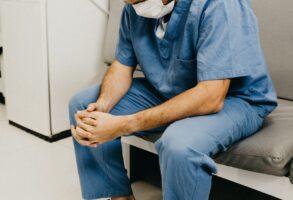
Caught between the oaths they took as medical students and the demands of corporate healthcare, today’s doctors suffer moral injury.
Articles
The Wall Street Journal / April 3, 2023
An Open Letter to HHS Secretary Becerra on Ending the Covid-19 Public Health “Emergency”
Ryan T. Anderson
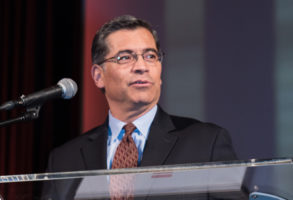
Human flourishing requires both public health and individual liberty and an appropriate balance between these goods when they conflict. We know that human beings flourish in community; we are social by nature. As such, we should not be surprised that government Covid-19 regulations mandating school closures, lockdowns, masking, and vaccination have isolated us from our fellow citizens and imposed significant attendant harms. It is time to declare this emergency over and once again let people take responsibility for themselves.
Public Discourse / March 18, 2022
Little Data, Big Headlines
Aaron Rothstein

On overinterpreting Covid studies for clicks
Articles
The New Atlantis / September 8, 2021
Covid-19 and the Erosion of Civic Trust
Aaron Rothstein

The American public deserves the truth, even if it is not as favorable or definitive as we would hope. If our policy leaders and scientists cannot put their faith in us with all our faults and shortcomings, why ought we put our faith in them with all their faults and shortcomings?
Articles
Public Discourse / December 15, 2020
A Passover in Self-Imposed Exile
Aaron Rothstein
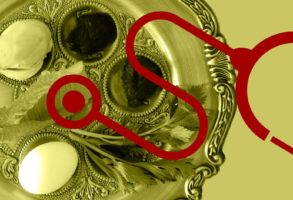
A doctor spends Passover in East Africa, surrounded by disease and suffering, and reflects on the tenuous balance between order and disorder, exodus and return
Articles
Tablet / April 23, 2019
Why the Hippocratic Oath Still Matters
Aaron Rothstein

The Hippocratic Oath offers physicians of any generation guidelines, proscriptions, and prescriptions about how to be a good physician. We may not agree with all of its conclusions, but if we unthinkingly dismiss them, we do so at our own peril.
Articles
Public Discourse / June 11, 2018
Dazzling Dendrites
Aaron Rothstein
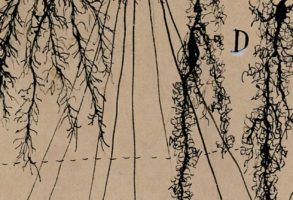
The importance of these two discoveries cannot be overstated. Treatments available for seizures, autoimmune diseases, depression, schizophrenia, anxiety, and more depend on the synapses between neurons; drugs act on receptors and chemicals in this space.
Articles
The Weekly Standard / March 16, 2018
Why the Humanities Matter
Aaron Rothstein
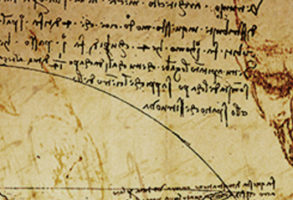
According to the Greeks, philosophy, literature, and history, also known as the humanities, played a role in clarifying those limits. And they forced citizens of Greece to ponder and discuss the question which would bring such clarification: what makes us human?
Articles
Literature, Arts, and Medicine Magazine / December 7, 2017
Bellevue: The Best and the Worst of America
Aaron Rothstein
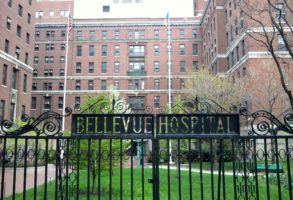
Bellevue reflects the worst and the best not just of its disadvantaged patients, its physicians, and its students, but of the American democratic project.
Public Discourse / April 7, 2017
Toward a More Human Medicine
Aaron Rothstein

More patient autonomy means higher demand for quality health care. More data from scientific studies and further efforts within hospitals to promote quality care means patients and physicians can make the right decisions and expect the right outcomes.
Articles
The New Atlantis / March 22, 2017